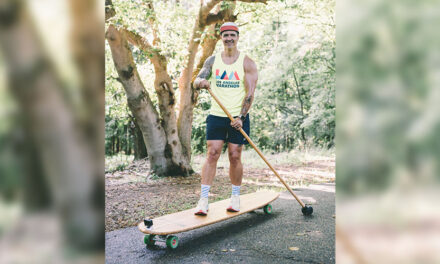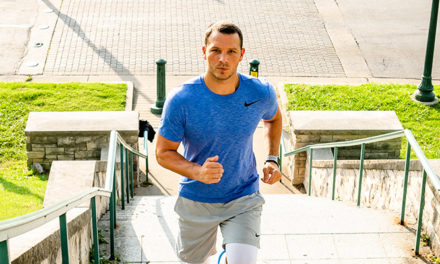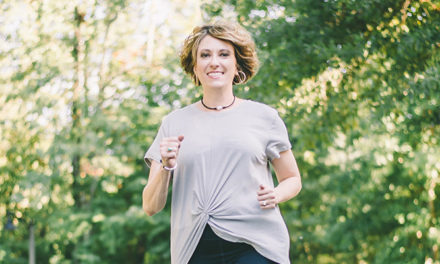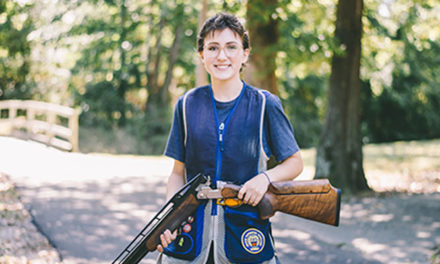In the spring of 2019, Katie Sims, 28, and her husband made a decision that would change their lives. One year after building their dream home, they sold it, quit their jobs, and moved with their three children from Olive Branch to Hernando, Mississippi to become houseparents for Palmer Home for Children.
The Sims family now resides in a home on the Christian-based nonprofit’s 150-acre campus. As full-time foster parents, Katie and her husband provide care and support for up to seven children placed with them by the organization, which has served vulnerable youth since 1895.
A Safe Space
Palmer Home’s Campus Care program is designed to give children ages 0 to 18 a healthy and stable family environment in which they can flourish, and witnessing that has been one of the most rewarding aspects of Katie’s job. She says, “Seeing children go from being afraid, scared, or timid because they just moved in with complete strangers to their walls coming down to where they’re laughing, they’re silly, and they want your help with things like picking out their clothes or putting on makeup, I think those moments where I can truly see that they feel safe, seen, and loved are what keep me going because I know that they are not day in and day out living on high alert…They’re able to just be a kid.”
The couple’s foster care experience didn’t begin with Palmer Home, however. In 2017, Katie and her husband felt called to open their doors. She says their goal was to be a bridge for children and eventually reunite them with their loved ones. That plan temporarily changed after they received their first placement, a five-year-old in dire need of adults willing to work with him through his challenges. “He had been in the system so long that he already had termination of [parental] rights, so he was immediately available for adoption,” Katie says. After six months, the pair decided to permanently make the little one part of their family, which already consisted of two children Katie was a stepmother to. “We just knew as the months went on that there was no reason to disrupt placement and move him because he needed to be with us, and we needed him honestly,” she says.
Aside from her faith, Katie credits a large portion of her success as a foster and adoptive mother to taking the time to be trauma informed. Learning about the impact chronic stress can have on brain development and the coping skills that creates allows her to better understand and connect with children.
Making Herself a Priority
Though there are currently eight youngsters total in her home, it’s not cooking large meals, tackling homework, or sticking to a schedule that challenges her most as a parent to so many. Katie says that as a foster mother, it’s the emotional weight you carry for the kids that takes the biggest toll. “When I came to Palmer Home, my stress level—just due to the nature of the job—shot up and I found myself having tight muscles and that my heart was racing all the time,” she says. Previously inactive for the most part, Katie decided to try exercising as a way to mentally unwind, and it became a habit she couldn’t live without.
Today, she aims to make it to the 24-hour off-campus gym she belongs to five times a week. “School has really helped with that because when they’re at school, I just carve out an hour in the morning and go. Even if we have our preschooler, there’s child care at the gym, so that also helps with giving him a change of scenery,” she says. Her fitness routine begins with 30 minutes of cardio using a spin bike, rowing machine, stair climber, or jump rope. She follows that with a half-hour session of resistance training using light weights or bands.
To make sure they are both able to prioritize their health and have time to themselves, Katie and her husband often switch off watching the kids on Saturdays while the other gets in a workout. And whether she’s sweating at the gym in town or at the miniature one in her garage, making sure she’s moving her body is a constant goal for Katie.
Leading by Example
Another way she continues to feel and function her best is through intuitive eating. Though weight has never been an issue, Katie still needed to break free from the diet mentality and categorizing food as “good” or “bad.” She says she’s been able to make peace with food by honoring her hunger and fullness cues, practicing portion control, and limiting items that make her feel bloated and tired like dairy and gluten.
When it comes to helping the children establish a healthy relationship with food, Katie is thoughtful with her words. “I’m dealing with vulnerable children that may take control of something like food because they temporarily don’t have control over big things. If I’m not very aware of that, then I can unintentionally feed into some of those coping skills that aren’t healthy.” Instead, she focuses on emphasizing balance (think chips now but a banana later) and squashing negative food and body talk.
Katie also incorporates staying active in the kids’ everyday lives. For fun, they ride bikes or play basketball. Their outdoor adventures can even include walks to visit farm animals nearby.
At the end of the day, the benefits of going on her own health journey have been multifold for Katie. She has improved her quality of life and reduced her risk of heart disease, which runs in her family. Additionally, she is thankful for the chance to show kids what self-care looks like and to have the energy, strength, and stamina to keep up with them for years to come.
To learn more about Palmer Home for Children, visit Palmerhome.org and follow Palmer Home on social media.
By Alexandra McCray
Photo by Tindall Stephens







